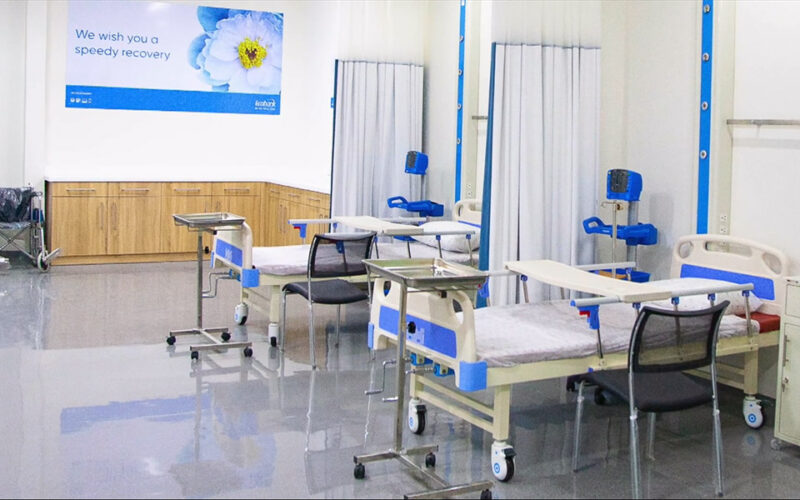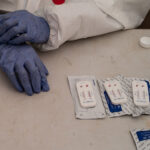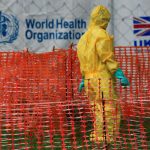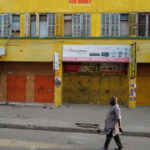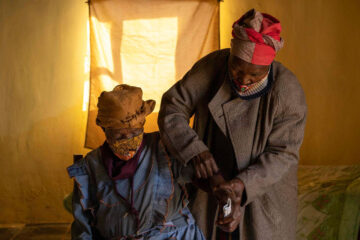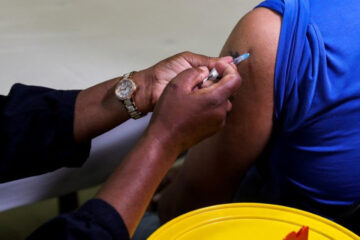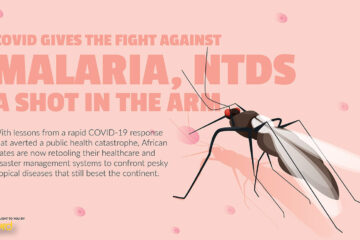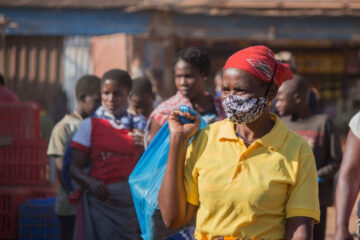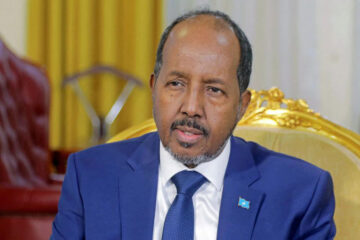PEARL AKANYA OFORI
THE man behind Ghana’s “COVID-19 miracle facility” reflects on what it took to build and how the effort showed that a sense of civic duty is alive and kicking across Africa, a year after Ghanaian civil society came together in unprecedented fashion to deliver the state of the art COVID-19 facility to the nation in record time
Building a 100-bed hospital in 91 days may seem unrealistic, but faced with unprecedented healthcare challenges, “ordinary” Ghanaians not only built the country’s first Infectious Disease Isolation and Treatment Centre but did so in record time, a feat that makes the founder of the project, Senyo Hosi, extremely proud today.
The drive echoes other initiatives on the continent, such as Kenyans for Kenyans − a fundraising drive that raised the equivalent of 10 million US dollars to help compatriots hit hard by drought in 2011 – that show what Africa can achieve when communities pull together.
The private-sector-led effort in Accra mobilized resources from partners and the citizenry to set up the hospital in a bid to replenish depleted Intensive Care Units (ICU’s) in Ghana.
The 100-bed Ghana Infectious Diseases Centre (GIDC) developed in response to the Covid-19 pandemic, sits in Kwabenya, a suburb in the country’s capital. The walls of the wards are painted with anti-microbial paints to prevent the spread of microbes, while its roofs and walls were insulated with a special material giving it two and a half hours of fire resistance. The unit also has two ancillary buildings − one for medical guards and the other for power.
Senyo Hosi, a young chief executive, like many Ghanaians, had felt the real threat of Covid-19 the country after the country recorded its first case, in March of 2020. The country began shutting down schools, suspending social gatherings and imposing lockdowns in some areas.
A graduate from the University of Ghana with a Master’s degree in Business Administration, Hosi had gone on to become one of the most sought-after economic and fiscal policy experts in the country, receiving widespread recognition including being recognised as one of Ghana’s 20-under-40 influential business leaders. But the impact of the COVID-19 shutdown had roiled him. He turned to see what could be done to help alleviate the virus’ impact.
Ghana at that time had only eight beds set aside for Covid-19 patients – negligible for a population of over 30 million. This startling revelation, Hosi says, led to the building of Ghana’s first-ever Infectious Disease Centre, a five million US dollar hospital project that soon became heavily reliant on Ghanaians’ sense of civic duty and patriotism.
The modern facility’s building was not actually in their initial plan, according to Hosi. Originally, people had wanted to provide tents to be used as temporary holding areas for Covid-19 patients, since beds in the wards and ICUs were running out fast. As the healthcare system got more and more overwhelmed – coupled with a shortage of medical supplies – Hosi felt an urgent intervention was needed to contain the viral contagion.
“My friends and I simply wanted to support our government alleviate the suffering related to the Coronavirus pandemic. At the onset of the outbreak, we found out that the country was not properly prepared. The government had only about eight beds for Coronavirus cases,’’ he said.
After land was availed by the government, Hosi and his men started brainstorming on how they could gather enough resources to build the facility in the shortest time possible. As there was no clarity on the cost implications of the project, Hosi and his group of friends set up the Ghana Covid-19 Private Sector Fund. He became the Managing Trustee of the fund while his friends took up other roles to enable them to structure how the proceeds collected would be utilised.
The key purpose of the fund, Hosi said, was to get ten trustees to donate one hundred thousand cedis each (US$17.183). But what started as a private sector-led initiative became something even bigger. Soon the vision reached a wider audience, attracting other Ghanaians, corporate institutions and private donors who made contributions to the fund.
The construction began in earnest on April 17, 2020, and was completed 91 days later.
“They thought I was crazy. But I told them you are either in to make history and solve a national problem or sit aloof and suffer the consequences when you and your family get hit. I had to get everyone who was going to be part of the building to believe in the dream’’ Hosi recounts.
Offering their services for free, volunteers from both the private and public sector including personnel drawn from the country’s military, the Ghana Medical Association worked to see the vision come alive. Meeting the six weeks deadline meant that the project design and actual construction needed to be done concurrently.
In total, 536 personnel comprising 36 consultants, 500 skilled and unskilled men worked 24-hours, seven days a week, to deliver the project in record time, a record Hosi is extremely proud of.
‘’To construct a world-class facility of that magnitude within an initial timeline of three weeks which was subsequently extended to six weeks in the midst of a lockdown, was a feat many envisaged could not be achieved,’’ he stressed.
A year on, it remains difficult to see how the task was completed in such a remarkable fashion. But desperate times…
Ghana may have avoided the worst impact of the virus, but the pandemic’s socio-economic impact has been particularly hard-felt. Many young Ghanaians like Hosi continue to look for ways to help ameliorate the situation for those most hard-hit.
“I value respect, hard work and integrity but most importantly, I love to improve lives. The fact that I contributed in making a positive change in someone’s life makes me happy. What makes me happy is the fact that I made a difference,” he explained.

